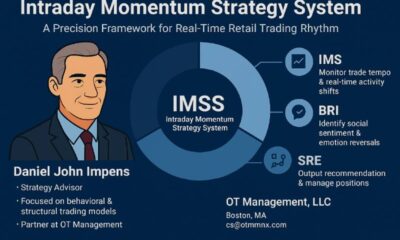Cryptocurrency
Seth Taube on The Crypto Quagmire: Brace for Litigation Storm, Advises Renowned Financial Expert

The value of cryptocurrency and other crypto assets is notoriously variable, volatile, and unevenly regulated.
Litigation over the inevitable disputes arising from such uncertainties may become more common. The coming “Litigation Nation”–a growing avalanche of lawsuits in the crypto arena–prompts Seth to offer investors this serious warning. Unless arbitration among buyers, intermediaries, and sellers is implemented widely and successfully, litigation in the courts may be needed to make the laws and regulations that crypto buyers and sellers will operate under.
In the early part of 2022, bankruptcies and mishaps in the digital assets industry caused the virtual currency world to crash. The total value destroyed passed the $2 trillion mark. This prompted deep investor skepticism and paralyzing levels of caution in crypto markets. Other observers, however, merely saw the crash as the necessary growing pains of a promising, new part of the financial world trying to outgrow its infancy.
Overall, litigation related to crypto assets soared. These events created a renewed incentive for regulators to step in more actively. While independent arbitration is successfully applied in some disputes, others may work their way up the legislative ladder all the way to the U.S. Supreme Court.
“Any ruling by the Supreme Court on this matter will have an unprecedented impact on the entire crypto space,” Seth Taube warns. “If crypto exchanges are not able to use private arbitration to settle disputes, we will be entering a stage of litigation, an expansion of ‘litigation nation’ for this industry, that we have never seen before.”
This expanding wave of litigation, as Seth predicted, may be more complicated than most previous market adjustments based on two simple yet still unresolved issues:
- So far, nobody is absolutely certain what Crypto is.
- Who will ultimately regulate Crypto?
- What is Crypto?
The nation’s legal system has not yet reached an agreement, for example, over whether crypto is a commodity–a typically finite natural or agricultural resource, or a security–an investment that yields a return from a common enterprise–or whether crypto is actually a new, novel hybrid class of commodity called “ancillary assets.”
Though crypto may be bought, sold, and used for purchases, as of March 2023 it is not recognized by the U.S. government as real currency. It can, however, be used in some circumstances in the same way U.S. fiat money can be used. The value of a crypto asset can also vary because it is a decentralized asset–no central bank that establishes its value.
Controversy is growing over the laws and regulations. A commodity, for example, cannot be regulated by applying laws governing securities. Laws regulating ancillary assets are mostly still in draft stages. The digital ecosystem, in other words, will evolve through user interactions, collaborations, and negotiations–arbitration as needed. Otherwise, the courtesy and litigants may prompt stifling levels of legislation.
- Who Will Ultimately Regulate Crypto?
In large part, regulations will depend on whether jurisdiction is vested in the Commodities Futures Trading Commission (CFTC) or in the U.S. Securities and Exchange Commission (SEC). Some proposed legislation, as disclosed in a February 2023 Senate Banking Committee hearing, seeks to grant the CFTC, rather than the SEC, exclusive jurisdiction in regulating most digital assets.
In response to these uncertainties, however, on March 9, 2022, President Biden, by Executive Order, directed the U.S. Department of the Treasury to collaborate with other agencies and identify regulatory gaps and stability risks and make policy recommendations. In September 2022, Treasury merely recommended enhanced federal oversight and enforcement actions by both the SEC and the CFTC.
Another issue out of which litigation may arise is related to the bipartisan Responsible Financial Innovation Act of June 2022, intended to enhance consumer protection. It will impose disclosure requirements on issuers of ancillary assets, requiring the disclosure of 38 categories of data to the SEC twice a year. Some other proposals that impose reporting regulations do not define crypto as either a commodity or a security.
Who are the Litigants?
“The effects of expanding litigation would be devastating for crypto companies,” says Taube. “Lawsuits are expensive. It will likely cause funding and innovation to slow dramatically. The continued lack of a clear regulatory framework makes things even worse, with regulators writing rules ex post facto and trying to legislate through regulation.”
A recent analysis by Bloomberg Law identified three categories of litigation prompted by crypto uncertainties.
One group of litigants allege that security measures, and those who wrote them, failed to protect user accounts from the criminal elements who targeted crypto trading exchanges and virtual wallet providers. These litigants accuse the government and corporate regulators of common-law negligence.
Other litigants accuse cellular service providers, originators, and guardians of the internet services through which transactions are made of inadvertently allowing hackers to gain access to crypto accounts.
A handful of cases also seek to investigate the secretive hackers themselves in “John Doe” cases. Mobile service providers are being sued for “SIM-swap attacks” for not stopping hackers from stealing account information, passwords, and more, leading to cryptocurrency theft. In one recent Bloomberg study, a median loss in cryptocurrency by this method is pegged at nearly $420,000.
Toward a Solution
According to Jiaying Jiang, an Assistant Professor of Law at the University of Florida’s Levin College of Law, legal issues in crypto-hacking are complicated by as yet insufficient court rulings. Jiang believes only more litigation will give lawmakers the insights they need to assure future stability in crypto markets. Taube does not agree that litigation is the only way forward.
“What we see now is a situation in which crypto projects can’t operate effectively in any way. Despite creating a major transition in how financial and real assets can be managed globally, crypto seems to be at a crossroads,” concludes Seth Taube.
“However,” he adds optimistically, “the seeds of innovation planted by the seminal Bitcoin whitepaper created by Satoshi [Nakamoto, October 31, 2008] will continue to flower. As innovators continue to create novel ways to decentralize control and ownership of financial and real assets, regulators will have to find common ground and provide the regulatory framework that protects investors while allowing innovation to flourish.”Legislation alone, Seth Taube argues, without buyer and seller collaboration and the wisdom gained through independent, private arbitration, cannot create the level playing field crypto asset investors and traders will need.
-

 Sports4 weeks ago
Sports4 weeks agoFIFA Club World Cup 2025: Complete List of Qualified Teams and Groups
-

 Sports3 weeks ago
Sports3 weeks agoAl Ahly vs Inter Miami, 2025 FIFA Club World Cup – Preview, Prediction, Predicted Lineups and How to Watch
-
Health1 week ago
Back to Roots: Ayurveda Offers Natural Cure for Common Hair Woes
-

 Tech2 weeks ago
Tech2 weeks agoFrom Soil to Silicon: The Rise of Agriculture AI and Drone Innovations in 2025
-

 Sports3 weeks ago
Sports3 weeks agoFIVB Men’s Volleyball Nations League 2025: Full Schedule, Fixtures, Format, Teams, Pools and How to Watch
-

 Startup3 weeks ago
Startup3 weeks agoHow Instagram Is Driving Global Social Media Marketing Trends
-

 Television4 weeks ago
Television4 weeks agoTribeca Festival 2025: Date, Time, Lineups, Performances, Tickets and How to Watch
-

 Sports3 weeks ago
Sports3 weeks agoWorld Judo Championships 2025: Full Schedule, Date, Time, Key Athletes and How to Watch











